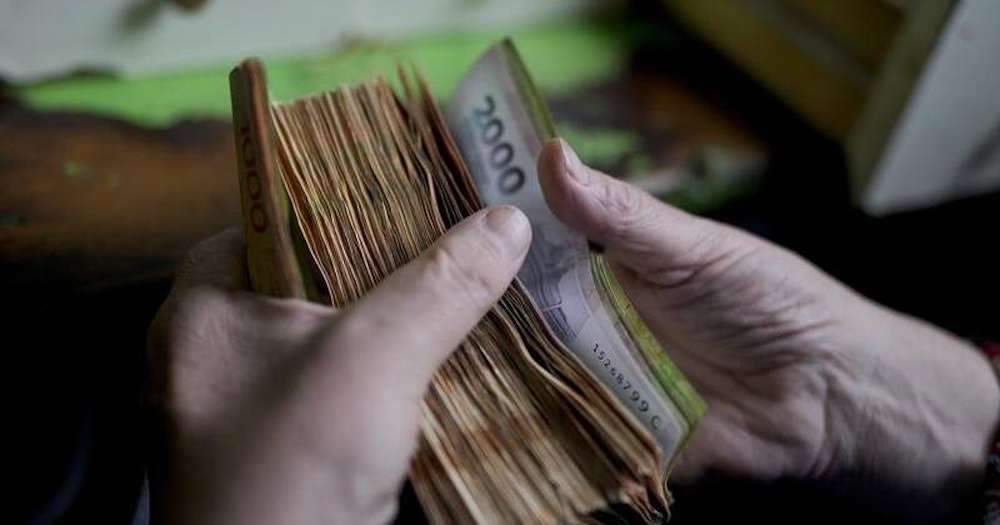The Argentinian government has announced that it will issue a $1 billion bond auction for international investors. This is the first time the government has done so since 2020, when it announced a sovereign default. The government frames the move as a return to international markets.
The experts take a more cautious approach to the news, typically stating that it’s not yet conclusive proof that the Argentine economy has recovered. It will signal confidence on the part of the investors if the bond is successful and traded.
Details about the Bond
The bond is peso-denominated, and it will pay out in five years. It allows subscriptions in US dollars but converts the proceeds to pesos in accordance with the official exchange rate. The bond was auctioned on May 28th. The interest rate of the bond was determined during the bidding process, and it will be paid out in semiannual installments starting in November 2025. The full repayment will, therefore, be completed by 2030.
The fixed annual rate was set at 29.5 percent. There is also a set opt-out that could occur in two years, allowing investors to exit in 2027.
Investor Demand
The action demonstrated a strong demand for the bond. The overall demand reached 1.7 times the initially planned $1 billion. It came from the 46 investors that made an official bid, but there was a buzz from much more than that.
In general, this means that there is genuine interest in the bond and, therefore, overall confidence in the Argentine economy. The relatively small number of individual investors, however, suggests that the financial sector remains cautious about it. However, many claim that new bonds will probably follow after the success of the bid.
The State of the Argentinian Economy
Under President Milei, the economy has gone through reforms and made significant gains. Inflation, which once rose to 300 percent, has since fallen to 50 percent and is expected to drop further to 28.6 percent. Expert publications, such as CryptoManiaks, have also written about the modernization of the economy and the integration of cryptocurrencies into traditional finance.
In recent years, the country has seen a rapid adoption of cryptocurrencies, and it had approximately $85.4 billion in cryptocurrency transactions in 2024 alone. The progressive tax packages recently introduced to the country have also included a tax for those owning more than $100,000 in cryptocurrency assets.
How Will the Funds Made from Bond Be Used?
Argentina will use the funds made from the bond to strengthen its internal reserves. The International Monetary Fund has tasked the Central Bank of Argentina with rebuilding that reserve. It’s part of the deal the IMF has made with the government, and it’s a requirement if it plans to borrow more.
Additionally, the funds will be used to service internal and local debts. The government needs to address the 8.55 trillion pesos (approximately $7.4 billion) in local debt maturing at the end of May.
How is Bond Different from Most Others?
Bonds are usually the safest way to invest, as governments have little option but to pay out. However, this bond is somewhat different than most others. The yields are significantly higher than those of other bonds, given the higher risk associated with Argentina’s history of defaults. It’s also a tool set by the government to achieve a macroeconomic policy goal – to stabilize Argentina’s finances.
The two-year put option is also somewhat unusual, suggesting that the government may not be as confident in the financial recovery as it appears.
Other Financial Measures
Argentina will introduce other measures to improve its financial standing alongside issuing the bond. There is an initiative to repatriate an estimated $270 billion in undeclared US dollars. This is to be achieved by eliminating all taxes on these funds, provided they are reinvested in the country.
The IMF has also approved a 48-month Extended Fund Facility arrangement for Argentina, totaling $20 billion. The program will have numerous applications, and in general, it demonstrates that the IMF is willing to trust the government and its efforts towards reforming the economy.
To Sum Up
Argentina has held an auction for a $1 billion bond that will pay out in five years. The auction has yielded more than the planned amount, and it should provide about 30 percent of the profit for investors buying the bond. It’s a measure the government will use to increase strategic financial reserves, as per a deal with the IMF.
The measure comes as the economy improves under a series of reforms. However, since Argentina has defaulted on its debts before, there are still risks involved, which is why the yield rates are so high compared to similar bonds. The profits will be paid out in 2030.

